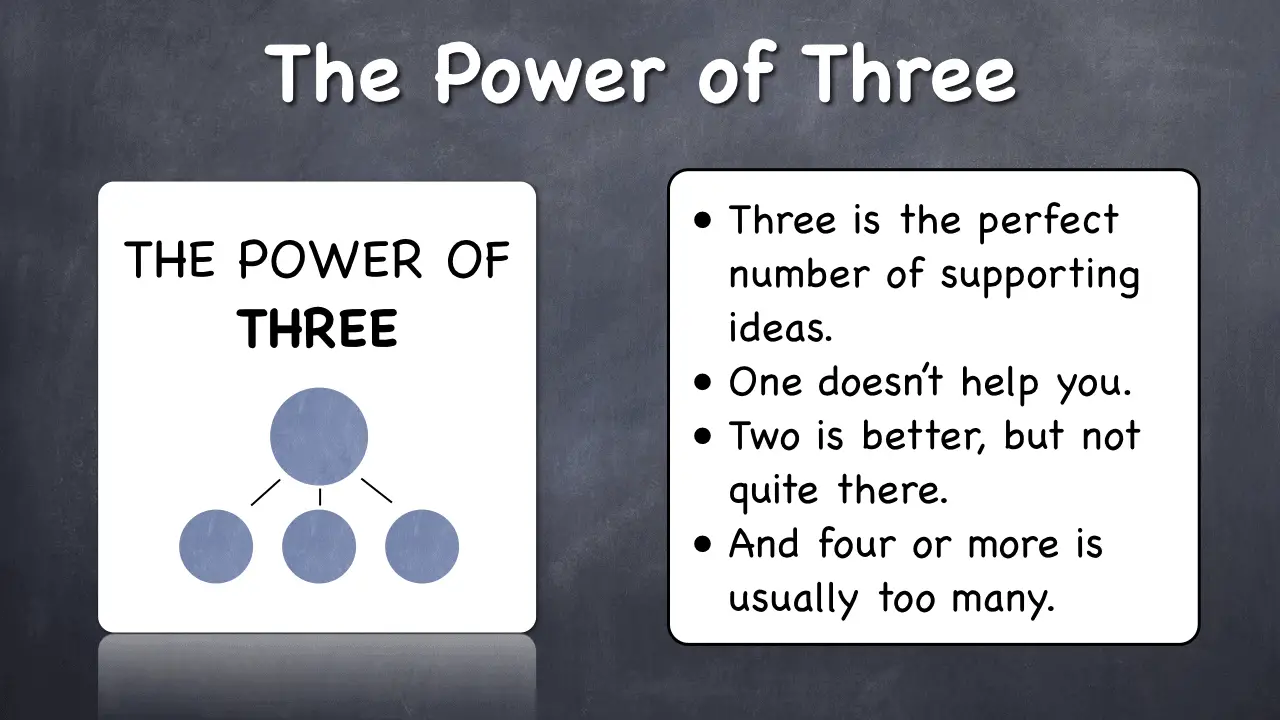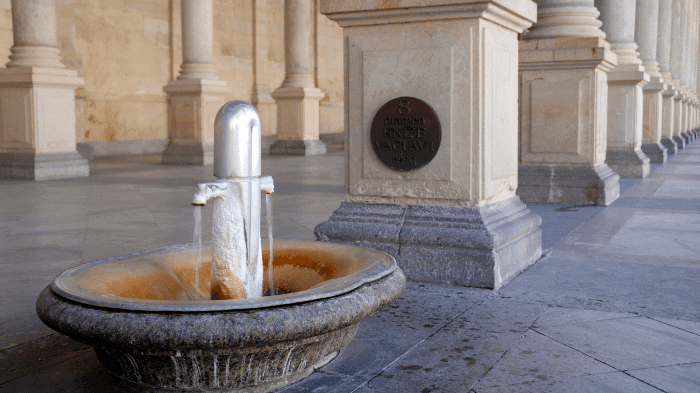
If you’re not sure what exactly a descriptive essay is and how to write one, you’ve come to the right place. I’m Tutor Phil, and in this tutorial I’ll explain how a descriptive essay works and how to write it, step by step.
We’ll write one together, so you’ll have a great example of a descriptive essay.
What Is a Descriptive Essay?
A descriptive essay is a piece of writing in which the author describes a place, a person, an object, an animal, or a process. The purpose of a descriptive essay is to move the reader to some kind of a revelation, conclusion, or decision about the subject.
It is very important to note that a descriptive essay is not an argumentative essay. You’re not presenting an argument and doing whatever it takes to support it.
In a descriptive essay, your intention should be to describe the subject in such a way that the reader would create her own impression of it.
At the same time, your essay is not neutral because it is colored by your own perception or experience of the subject.
In other words, you are implying and suggesting, not blatantly pushing an opinion.
You want to let the reader see, hear, touch, smell, and taste the place you’re describing. And that experience should lead the reader to an appropriate impression or conclusion.
Writing a Descriptive Essay Is a 6-Step Process
Step 1. Choose the subject
Maybe your instructor has already chosen the subject for you. If not, choose a country, city, or a place within a city or a geographical location that you are familiar with.
Ideally, it is a place that you have been to and have a good memory of it. A descriptive essay about a place should not rely solely on research, in most cases.
The real value of your essay is that you know that place, and perhaps it has a special meaning for you or evokes feelings that no other place can evoke.
So, unless you have to write about a specific place where you have never been, choose a location that has a special place in your heart.
Sometimes, your subject can be a place with which you may have negative associations. But most likely, it is a beloved place that has left an indelible impression on your heart and mind.
Criteria for choosing the place
- Ideally, this place should be dear to your heart
- It is unique. It is unlike any other place you’ve ever been to, in at least one or two important ways
- It has left a strong impression on you
- Perhaps you learned something there
- Perhaps something wonderful happened to you there, such as meeting your soulmate or discovering something about yourself
- Ideally, it has special visual qualities that stand out in contrast to what your audience is probably used to. In other words, being visually striking is a huge plus.
I’ll give you an example. For me, one particular little spa town in Europe won me over when I first visited it many years ago. Its name is Carlsbad, or Karlovy Vary. The terms are interchangeable. One is of German origin, and the other is native Czech.
It is located in the western part of Czech Republic, not too far from the German border. It is serene, spectacular, and magical, and I’ll choose it as the subject for our sample descriptive essay.
By the way, Carlsbad, California was named after Karlovy Vary because of the similar mineral content of the underground waters found in the American cousin city.
Step 2. Pick an audience
I understand that you’re probably writing this essay to fulfill a requirement for your class. In which case, your audience is your teacher or professor.
But even if you’re writing for your instructor, you should still have a particular audience in mind because this will help you form ideas and keep your thoughts flowing.
Knowing your audience will inform your choices of what to include and what to exclude in your descriptive essay because your reader may care about some aspects of this place but not others.
Criteria for choosing an audience
- Your ideal reader is someone who is most likely to be interested in this place
- It is someone who is likely to enjoy reading your essay
- Your ideal audience is also someone who will benefit from reading about this place and derive the most value from it
Let’s come back to our example of Karlovy Vary. As I already mentioned, it is a spa town, which means that its attractiveness lies in its therapeutic qualities.
I first visited this gem of a town back in 2004 as a result of a real academic and professional burnout. I believe I was still an undergraduate student finishing up my studies, and I also had a stressful job.
I lived in Brooklyn, which is a borough of New York City, and this metropolis is known for its stressful lifestyle.
New York has all the disadvantages of living in a large city, such as pollution and other stressors that can really suck the life energy out of its dwellers if they are not careful.
I lived in New York for 25 years, and I love this city. I don’t want to come across as totally negative about it.
But focusing on the negatives about my city in this case will help you see how I am choosing the audience for this essay we’ll be writing together in this tutorial.
You see, New York City is a direct opposite of Karlovy Vary in several critical ways.
Establishing a contrast helps define an audience
New York is noisy. Drivers here are notorious for incessant horn honking. And you can hear an ambulance or a police siren probably every 15 minutes or so.
Conversely, Karlovy Vary is super quiet. Such a crazy hustle and bustle doesn’t exist here, and drivers don’t have a reason to honk the horn all the time. It is also very rare to hear a police or an ambulance siren.
Air quality in New York is decent for a big city, but it is still relatively polluted. All the millions of cars and trucks produce way too much carbon dioxide. You can actually see the smog from some vantage points.
The air in Karlovy Vary is virtually pristine. The town is surrounded by hills, and car traffic is not allowed in the city center.
The landscape in New York is a bit monotonous and often fails to inspire. They don’t call this city “a concrete jungle” for nothing. The overall atmosphere is hardly conducive to a great mood or daily inspiration.
Conversely, Karlovy Vary offers aesthetically pleasing, relaxing, and inspiring architecture and landscape. It’s like entering a spa, only the spa is a whole town.
Now that we have this contrast, it is easy to see who might be interested in learning more about Karlovy Vary. Our ideal audience is someone who:
- Lives in a big metropolis, such as NYC or another big city
- Can relate to being excessively stressed out
- Is aware of noise and air pollution
- Would love an escape to relax and renew, even if only by reading an essay.
So, our essay becomes a sort of a virtual or a fantasy escape until an actual trip becomes possible.
Your audience might have different challenges, needs, and desires. It could be someone who:
- Is nostalgic about their childhood and a place associated with it
- Dreams about a perfect place to live and work
- Plans a retirement location
Think of these factors when determining your audience. In the meantime, because we’ve already identified our ideal reader – a stressed out urban dweller – we can move on to the next step.
Step 3. Divide the subject into subtopics
No matter what kind of an essay you’re writing, you want to divide the main topic into subtopics. In other words, you want to create some kind of a structure that will consist of parts.
I use and teach my students to use the technique I call the Power of Three.

What this means is that instead of having just one big topic, such as one town, we can have three aspects of this town to discuss.
Incidentally, we already talked about three major differences between NYC and Karlovy Vary. These are noise levels, air quality, and landscape. So, perhaps we can use one or more of these aspects of a city as sections of our essay.
We must keep in mind that we’re not writing a comparative essay, although that’s a possibility, too.
We’re writing a descriptive essay. So, we need to find three aspects of the town that we can discuss one after another to put together a rich and detailed enough picture of this place.
Note that these three aspects correspond to the senses of hearing, smell, and sight.
Let’s make a preliminary list of such aspects of Karlovy Vary:
- Quietness. Does this aspect present an interesting description opportunity? This will depend on our ability to turn it into an asset.
- Air quality. This may be too specific. We may want to zoom out a little and discuss more than one natural asset of this city. Some of the others include water quality and the industries associated with it.
- Landscape. This is the most conspicuous aspect of this city. The first thing you’re struck with is how beautiful this place really is. This one is definitely a winner.
If we go about writing about these three aspects of Karlovy Vary creatively, we will have three nice sections or paragraphs that will form the body of our essay.
Note that we’ll probably use more than one sensory perception, such as sight or smell, in each section. We’ll simply use one of three senses as a primary focus in each of our three sections.
It would make sense to begin the discussion of the city by describing it visually. So, this will be our primary focus in the first section.
Then, we can proceed to the sense of hearing. Why? Because our last section will be about air and water. And we should probably leave those for last because we can hear the water before we can taste it. That’s just the way it works in Karlovy Vary.
So, the primary sense perception in our second section will be hearing. And this section won’t be just about how quiet it is.
In fact, the real contrast between a big city and Karlovy Vary is the quality of the soundscape, not just the simple quietness, although it’s a part of it. So, we’ll focus on all the little sounds that make this place unique.
Finally, in the third section or paragraph, we’ll talk about the air and the water, which will correspond to the senses of smell and taste, primarily.
Again, we’ll be using any sense perceptions we feel necessary to make the reader’s experience as real as possible.
And now we have our place, we know our audience, and we have our three main ideas about this place that we’ll use to structure the essay.
We can begin writing, and we’ll start with the opening paragraph.
Step 4. Write the introduction
An introductory paragraph in a descriptive essay offers you a lot of flexibility in how you choose to write it.
You can start off with a particular example of a sense perception, drop your reader in the middle of a town square, or begin with an abstract concept.
I would like to suggest an easy and practical way to do it. In the first sentence or two, pull your reader from the outside world into this particular magical place you’ve chosen to write about.
Then, focus on the place you want to describe and say something general about it that would set the context or provide a perspective.
And finally, set some kind of an expectation for what’s to follow. You can create a sense of mystery, if you like. Remember, this is not an argumentative essay. So, you have more room for creativity.
This is where we begin to put together our descriptive essay example. Let’s write our introductory paragraph.
Descriptive Essay Introduction
“When the city has worn you down, the body is tired, and the soul yearns for a respite, you can count on a little magic gem of a town that will nourish you back to life. The name of the place is Karlovy Vary, and it is nested in the heart of Europe, in Western Bohemia, a region in Czech Republic famous for its spa towns. Its beautiful architecture, therapeutic landscape, clean air, and mineral waters offer the weary a healing adventure and a feast for the senses.”
What have we done in this paragraph?
We’ve pulled the reader into the world of this small spa town. We first descended in their world of the stressful city, and then we turned their attention to its opposite. We named the town and explained where it is located.
And finally, we provided a glimpse of what to expect in this descriptive essay about this town. Now, we’re ready to write the body of the essay.
Step 5. Write the body of the essay
We know our three main sections, which in this case correspond to three sense perceptions. Each section can have more than one paragraph. It all depends on how long your essay has to be.
If you are writing an essay of about 500-600 words, then a five-paragraph structure will do the job. If you need to write 2000 words or more, then you’ll have three sections instead of just three paragraphs.
And then each section can also be divided into two or three subsections (using the Power of Three, if you like). And each subsection can be a paragraph or more.
Just remember – the more words you need, the more dividing into subtopics you must do. The key to writing more is dividing one idea into several supporting ideas. And then you simply treat each supporting idea as a tiny essay.
If you struggle with essay writing in general or need to brush it up, I recommend you read my tutorial on essay writing for beginners. This would be a great place to turn to next.
Now, let’s write out our body paragraphs. Since there’s quite a bit to cover, we’ll probably take two paragraphs per section to get the job done.
Descriptive essay body paragraphs
“When you stay in one of the pretty little hotels in Karlovy Vary, you are likely to be descending the hills towards the hot springs every morning. No matter which part of town you live in, you’ll be greeted with a magnificent sight of little hotels and spas whose architecture has a unifying 19th century style. At the same time, each building has its own character, color, and features. The town is situated on several hills, and the hotels are lined up along about four levels.
The first level is down by the river Tepla, and these hotels are only a few because most of the downtown is occupied with hot springs colonnades where people gather and drink hot mineral water. The next three levels ascend from the springs, and you can either take the stairs or even use a funicular that will take you to the highest level to the Hotel Imperial. As you exit your hotel in the morning, you are greeted with a sight of a collection of small, three to four story buildings that look like birthday cakes. They are pink, green, blue, red, turquoise, and any color you can imagine. You suddenly realize how this variety of colors and shapes strewn over the hillsides all facing you and the city center makes your head spin and makes you feel like you’ve never felt before. Your healing has begun with landscape therapy.
As you descend the stairs to reach the hot springs, you notice the abundance of oxygen in the air because it has a subtle but distinct smell, a bit like the way air smells right before a rain. Then, as you pass by another hotel, and you’ll pass more than one, a light whiff of toast and fried eggs with bacon hits you, stirring your appetite. It is customary to drink a cup of hot mineral water before you come back to your hotel for breakfast. It is called a drinking cure.
As you keep walking towards the geyser and the springs that surround it, you notice another astonishing detail. Nobody is in a rush. Nobody has anywhere to be except right here, right now. Travelers with cute little porcelain cups stroll along without a worry in the world, taking in the sights, the smells, and the sounds of the birds chirping and singing all around. Their serenity infects you. You slow down, too. You begin to look, smell, and listen. This town has got you.
Karlovy Vary is famous for its healing mineral waters that are known to alleviate gastrointestinal issues. These waters really do have magic powers. You have your little sipping cup with you, and when you reach one of the springs, you wait for your turn to fill it up, walk off, and begin sipping. The water has a very subtle smell, but its taste is pretty strong for water. It has very high mineral content and tastes salty. Most people like the taste. Some find it too strong. But one thing is for sure – by the time you’re about half way through with your cup’s content, your digestive juices have begun to stir.
The hot springs flow out through several fountains, each with its own intricately detailed colonnade. The mineral content of water bursting out of each fountain is identical. But the temperature of the water varies from really hot to mild and comfortable. Your “spa doctor” actually prescribes which fountains to use and how much to drink. Sipping the water out of a special porcelain cup with a built-in straw-like system is a special pleasure of its own. The point is not to rush but to take about 20 minutes to empty the cup. In the meantime, you have a chance to take in the magnificent serenity that surrounds and infuses you. When you’ve drunk your water, it is time to head back to your hotel and eat breakfast. You repeat this routine three times a day for the duration of your stay. By day three, you are serenity itself. By day fourteen, you are a brand new person.”
Step 6. Write the conclusion
A conclusion in a descriptive essay is, like the introduction, more flexible than a conclusion in an argumentative essay.
You can conclude your essay in any way you really want as long as you observe one rule. Just make sure you zoom out and write in more general terms.
It is not the time to add specific details and examples. This is the time to wrap things up and end on a general note.
Your conclusion can be very short – only a couple of sentences. But you can take your space and write as much or as little as you feel like. You can always go back and trim it down or beef it up.
Let’s write our conclusion.
Our Conclusion
“Upon reading this, you may feel that this town is described as some sort of a paradise. And in a way, it is, especially if you are traveling from a big city and carrying a load of accumulated stress. But it’s not until you see, touch, smell, hear, and taste it for yourself that this European jewel will become a part of your entire being forever.”
It’s okay to be a little emotional and perhaps to even exaggerate a little in the concluding paragraph. Just notice that this one is more general than any of the body paragraphs.
It also touches upon or mentions every sense perception evoked in the body of the essay.
Your Key Takeaways
- A descriptive essay is much more flexible and has a lot fewer rules than an argumentative essay.
- Use the five sense perceptions – sight, smell, touch, taste, and hearing – to structure your essay.
- You don’t have to organize your essay by sense perceptions. You can divide your place into sections and walk the reader through each one.
- You can even structure your essay as a string of paragraphs that describe one particular walk or route, from beginning to end.
- Our last body paragraph is a description of the process of drinking hot mineral water in Karlovy Vary. It is a perfect example of a description of a process, if you ever want to write that kind of an essay.
- Don’t persuade but subtly suggest.
- Show, don’t tell, whenever you can.
A Few Scenic Snapshots of Karlovy Vary’s Charm





I hope this was helpful. Now go ahead and write that descriptive essay about a place!
Tutor Phil
